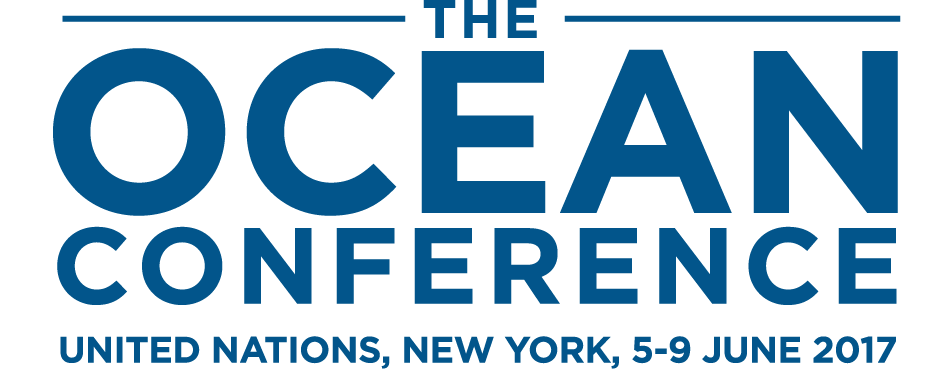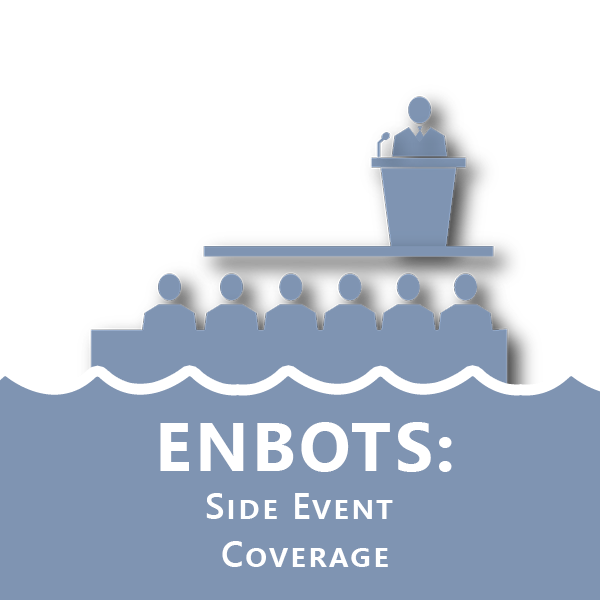Daily report for 17 July 2018
2nd Part of the 24th Session of the International Seabed Authority
On Tuesday, 17 July, the Council of the International Seabed Authority (ISA) addressed:
- national legislation on deep-seabed mining;
- the first joint meeting of the Legal and Technical Commission (LTC) and the Finance Committee; and
- a revised draft of the exploitation regulations.
National Legislation
ISA Legal Counsel Ascencio-Herrera introduced the Secretary-General’s report on the status of national legislation relating to deep-seabed mining, including a comparative study of existing national legislation (ISA/24/C/13). CHINA, supported by CAMEROON, stressed that the implications of national legislations for exploration and exploitation in the Area must be clarified with respect to sponsoring states’ and contractors’ responsibilities. The Council took note of the report.
Joint Meeting of the LTC and Finance Committee
LTC Chair Walker reported on the first informal joint meeting between the LTC and the Finance Committee held on 13 July 2018, to discuss roles and responsibilities of each body with respect to the draft regulations and future exploitation. She considered that there is no overlap among competencies; stressed the LTC’s role to make recommendations to the Council with respect to activities in the Area; and suggested further cooperation between the two bodies. Responding to BRAZIL, Walker reported on preliminary discussions on the LTC functioning as the Planning Economic Commission, as outlined in the UN Convention on the Law of the Sea (UNCLOS).
CAMEROON underscored the importance of the Finance Committee’s recommendations on a profit-sharing mechanism; and raised issues around the administration of a benefit-sharing fund and the percentage of revenues destined to it. AUSTRALIA pointed to the need for expanding environmental expertise within these bodies, with Walker replying that this had been broadly addressed and may be raised in the future.
Draft Exploitation Regulations
President Myklebust introduced a revised draft of the exploitation regulations and the accompanying LTC note (ISBA/24/C/LPC/WP1/Rev.1 and ISBA/24/C/20). LTC Chair Walker highlighted the key matters requiring further analysis. Several delegations thanked the LTC for the progress made in the revised draft regulations. CAMEROON, supported by NORWAY, emphasized the urgency to complete work on the regulations, with the NETHERLANDS underscoring the need for robust regulations. AUSTRALIA recommended not rushing the regulations and providing sufficient time for States’ inputs. POLAND noted that an improved structure for the regulations would benefit prospective contractors.
Brazil, on behalf of GRULAC, welcomed the African Group’s papers on the payment system and the operationalization of the Enterprise, requesting discussing it in relation to the draft regulations. BRAZIL lamented that his comments during the March session were not taken into account regarding the Enterprise. President Myklebust proposed discussing the African Group’s paper on Friday morning, along with a submission from Poland on a possible joint venture with the Enterprise. JAMAICA supported progress on the Enterprise. In response to a query from CHILE, Walker clarified that the Enterprise will be discussed at the next LTC session.
The HOLY SEE expressed concerns on: the consequences of deep-seabed mining on local communities’ food supply; the prevalence of economic considerations over human life and the marine environment; and taking into account social impacts and legal uncertainties when mining in zones of the Area adjacent to exclusive economic zones (EEZs).
The FISH REEF PROJECT proposed inserting reference to social mitigation projects, such as the creation of new reefs to enhance fisheries and socio-economic benefits for people in developing and land-locked nations. IUCN questioned the appropriateness of such a reference in the context of the Area and the common heritage of humankind as a whole.
Preamble: CHINA suggested including reasonable balance between exploitation and environmental protection and due regard for mutual interests. The DSCC recommended reference to ensuring effective protection of the marine environment.
Standards and guidelines: AUSTRALIA requested, supported by TONGA, developing standards and guidelines in parallel with the regulations, so they can be adopted simultaneously. JAPAN suggested reference to taking into account stakeholders’ views. BELGIUM supported binding guidelines.
Common heritage: The AFRICAN GROUP, supported by JAMAICA, urged strengthening the common heritage principle throughout the regulations. TONGA emphasized operationalizing the common heritage principle. CHINA, supported by CHILE, recommended incorporating the benefit-sharing mechanism into the regulations. INDIA emphasized: the importance of the common heritage principle; and sponsoring states’ responsibilities. The DEEP SEA CONSERVATION COALITION (DSCC) called for operationalizing the common heritage to the benefit of humankind as a whole.
Participation: JAPAN urged involving stakeholders working in, and doing scientific research on, the Area. The UK suggested clear language on the right to public participation. AUSTRALIA highlighted that consultation with nearby coastal states should be a precursor to the approval of contracts. MONACO emphasized the importance of marine science. MEXICO said interventions from the scientific and NGO communities must be taken into account. DOSI, supported by INTERRIDGE, commended increasing support for environmental science.
Environmental policy: JAMAICA called for clarity on specific environmental provisions, with the UK recommending that the definition of “serious harm” should reflect an “appropriate level of caution.” FRANCE, supported by CANADA, urged strengthening provisions on environment protection, monitoring and evaluation similar to other marine-related processes. CHILE, supported by IUCN, emphasized the role of science in investigating impacts on the marine environment. The HOLY SEE, supported by IUCN, underscored: marine spatial planning; valuing all resources before starting mining; and improving cooperation on best practices and technology. The DSCC called for enhanced public participation to develop the environmental policy framework, noting liability and dispute resolution as current gaps.
BELGIUM called for a contact group to look at overlaps between the work of the ISA and the process on marine biodiversity of areas beyond national jurisdiction (BBNJ). TONGA requested developing a robust environmental framework with inputs from all stakeholders.
REMPs: The UK, supported by BELGIUM, stated REMPs are “essential, not optional.” AUSTRALIA, supported by IUCN, emphasized the development of REMPs and the need to further elaborate on the due regard to other maritime activities. JAMAICA reiterated the importance of REMPs, cautioning against addressing environmental issues in an annex. SINGAPORE supported developing REMPs, which should take into account broader regulatory frameworks.
Principles: DOSI called for clear definitions of environmental objectives, principles and standards that can be fully operationalized. The UK, supported by NORWAY, suggested elaborating upon the ecosystem approach. NORWAY, supported by the DSCC, suggested including the polluter pays principle in the regulations.
The UK, supported by GERMANY, the PEW CHARITABLE TRUSTS and IUCN, affirmed that the precautionary principle should be at the heart of the process. The PEW CHARITABLE TRUSTS, supported by IUCN, called for the inclusion of scientists from multiple backgrounds to: support the operationalization of the precautionary principle, take into account ecosystems integrity, and improve understanding of the implications of these aspects for future contractors. The UK, supported by NORWAY and the AFRICAN GROUP, and opposed by AUSTRALIA, favored reference to the precautionary “principle” rather than “approach.”
ISA responsibilities: JAMAICA, supported by the UK and NORWAY, called for improved clarity on the responsibilities of different ISA organs and actors. TONGA proposed that the Secretariat warn coastal states in cases of serious harm to the environment done by contractors. On consideration of applications, POLAND, supported by AUSTRALIA, suggested carefully aligning the timing of the application stages and LTC sessions. On assessment of applicants, FIJI encouraged the LTC to effectively determine if applications interfere with the freedoms of the high seas. JAPAN pointed to the ISA Council’s role under UNCLOS to issue emergency orders to prevent serious harm, and the LTC’s duty to notify the Council of such cases.
ISA environmental expertise: BELGIUM noted their non-paper on strengthening the environmental expertise and capacity of the ISA and all its organs, including by making each environmental plan publicly available and reviewed by three independent experts. FRANCE, MONACO, MEXICO, CÔTE D’IVOIRE, POLAND, BANGLADESH and INDIA welcomed the non-paper, with GERMANY, the UK and the NETHERLANDS favoring cost-efficient approaches and avoidance of duplication of work. GERMANY noted their proposal for intersessional working groups to address issues at stake (ISBA/24/C/18). CAMEROON underscored the need for the ISA Secretariat’s capacity to increase in relation to environmental protection, finance and inspection. MOROCCO supported the three principles proposed in the Belgium non-paper: expertise, independence and transparency; and stressed the importance of capacity building for scientific research. CHILE highlighted the importance for the ISA’s legitimacy of designing robust environmental preservation criteria. The DSCC recommended including both scoping and the mandatory testing of equipment in the environmental impact assessment (EIA) process.
Application for approval of plans of work in the form of contracts: SINGAPORE suggested prioritizing standards and guidelines that will be first addressed when developing the plan of work. GERMANY requested reference to pilot mining tests to ensure technical, commercial and environmental viability. AUSTRALIA called for avoiding conflicts of interest by separately assessing environmental issues from financial benefits; and recommended considering environmental remediation as an aspect of financial viability. With JAMAICA, he called for greater clarity on compensation mechanisms for environmental damage.
The UK emphasized the importance of transparency in all applications and suggested the inclusion of other relevant bodies, such as the International Maritime Organization (IMO), to take part in this exercise.
Sponsoring states: ARGENTINA, supported by the NETHERLANDS, encouraged clarifying the meaning of the applicant being subject to sponsoring states’ “effective control.” AUSTRALIA, supported by POLAND, suggested further consideration of situations when applicants have multiple sponsoring states.
Contractors’ responsibilities: IUCN noted: the need to elaborate on: “reasonable regard” for other activities in the marine environment; and, with INDIA, on “good industry practice”; and the importance of independent expertise in relation to conflicting objectives of different activities. The DSCC recommended that the ISA review EIAs carried out by contractors, which should be made available for stakeholder comments.
The UK raised questions on the desirable levels of transparency of information provided by contractors and called for: enhanced definitions of “adverse environmental conditions” to better address potential environmental damage; and for references to environmental issues in relation to the plan of work. ITALY cautioned against insurance mechanisms with insufficient capacity to address “serious accidents,” calling for strengthening the proposed environmental liability trust fund.
The REPUBLIC OF KOREA called for including detailed reasons for terminating sponsorship; and alerted about risks of monopolization of contracts. FRANCE supported language on preventing all types of monopoly. POLAND raised the question of what happens if sponsorship is terminated. JAMAICA argued delays in contract renewals should not lead to an automatic extension, calling for adaptable management. JAPAN suggested contractors be required to inform the IMO’s World-Wide Navigational Warning Service of their exploitation activities.
In the Corridors
As delegates rolled up their sleeves to tackle the draft regulations on deep-seabed mining, some LTC members declared themselves surprised that interventions did not address new language in the draft regulations laboriously produced by the LTC on the basis of the Council’s guidance produced in March. Others pointed to new issues emerging at this session, including from non-papers submitted by one national delegation on independent, external environmental evaluations and by a regional group on operationalizing the “Enterprise,” which another regional group supported. Yet others noted with interest the idea of a contact group to explore areas of contact with the BBNJ process. As today’s discussions mainly focused on technical details in the regulations, a delegate recalled their significance for the bigger picture: “we are working on an unprecedented theme, which will make history.”
-->
Specific funding for coverage of the Ocean Conference - June 2017, has been provided by the
XXX, XXX, and XXX
-->
IISD Reporting Services is a division of the International Institute for Sustainable Development (IISD).
Earth Negotiations Bulletin (ENB), ENB+, and Knowledge Management for Sustainable Development
are branches within IISD Reporting Services.
© 1992-2018, IISD Reporting Services. All rights reserved.







